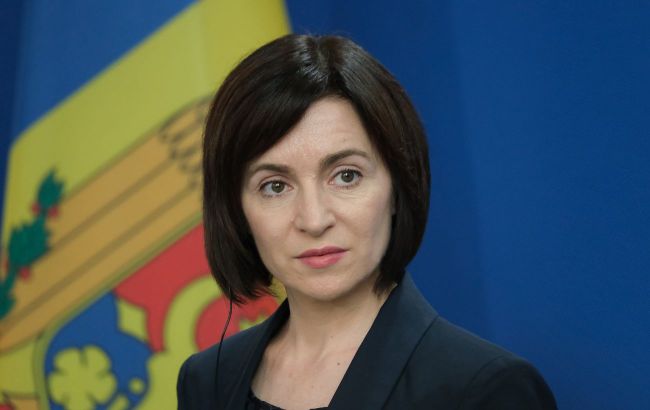Kremlin seeks to seize control in Moldova and use it against Ukraine - Sandu warns
 Photo: Maia Sandu, President of Moldova (Getty Images)
Photo: Maia Sandu, President of Moldova (Getty Images)
President of the Republic of Moldova Maia Sandu state that the Kremlin seeks to change the government in Moldova in order to subordinate it to its own interests and use it against Ukraine, according to jurnal.md.
Sandu stated that the Kremlin, during the country's parliamentary elections, is attempting to replace the government with those whom it can control.
In her speech in parliament, she emphasized that such interference threatens not only Moldova's security but also Ukraine's, as a change in leadership in Moldova could make the country a springboard for Russian influence.
“We have a 1,200-kilometer border. Imagine that overnight this border with a friendly country turns into a border with a state controlled by Moscow. Of course, there are risks for Ukraine here, but at the same time, the risks for Moldova also increase, because in this way the Russian Federation can drag Moldova into war,” noted Sandu.
She emphasized that such a situation poses serious risks to both Moldova and Ukraine. Sandu emphasized the importance of Moldova remaining on the side of freedom and security, thereby avoiding being drawn into the conflict by the Kremlin.
Maia Sandu added that the judicial system must take measures against the organizers of voter bribery to ensure the democratic nature of the process.
“We have a moral duty to remain on the good side of things, to remain a friendly country,” emphasized the President of Moldova.
Bloomberg stated that Ukrainian special services are convinced that the key goal of Russia is to turn all Ukrainian politicians against each other, if elections for the presidential seat take place.
According to their data, after the first strike, Russia will deliver the next one, namely, resume the war with triple force after the change of power.
In addition, Romanian experts believe that the influence of the Russian Federation (RF) on last year's presidential election should not be overstated, as internal factors primarily drove the outcome.
Today, Russia is considered a hostile state for Bucharest, in connection with which it is unlikely that many Romanians succumbed to the influence of its propaganda.

